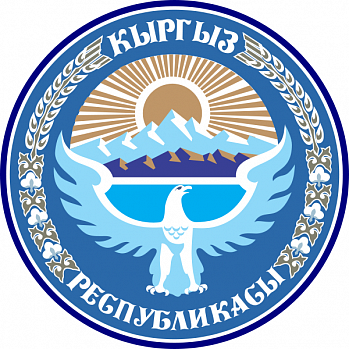.png) the Kyrgyz Republic
the Kyrgyz Republic
Statement by the Ministers of Foreign Affairs of the States Members of the Collective Security Treaty Organisation on expanding cooperation in international information security
|
June 21, 2024 |
Almaty |
We, the Ministers of Foreign Affairs of the Republic of Belarus, the Republic of Kazakhstan, the Kyrgyz Republic, the Russian Federation and the Republic of Tajikistan,
underscoring the importance of strengthening international legal and practical cooperation under the CSTO Agreement on Information Security Cooperation of November 30, 2017;
noting that the use of information and communication technologies (ICT) can have a direct impact on the political, economic, military, humanitarian and other aspects of international security and stability;
deeming unacceptable the use of ICT for cyberattacks on critical information infrastructure, as well as for terrorist, extremist and other criminal purposes;
emphasising that unlawful use of ICT to the detriment of the interests of the individual, society and the State, as well as to promote and incite hatred against ethnic and religious groups is unacceptable;
emphasising the unacceptability of interference in the internal affairs of the CSTO member states, by third countries and their private companies, using information infrastructure and technologies, including Low Earth Orbit (LEO) satellite internet access systems:
reaffirm that our approaches to ICT security issues are closely aligned and guided by the List of Additional Measures Aimed at Ensuring the Information Security of the CSTO, approved by a joint decision of the Council of Foreign Ministers and the Committee of Secretaries of Security Councils of the CSTO on November 22, 2023;
consider it expedient to prevent the use of ICT in the military-political and other spheres for the purpose of undermining (infringing on) the sovereignty of states or their territorial integrity, or for other actions in the global information space that jeopardise international peace, security and stability;
stress that the United Nations should play a central role in countering information threats, creating a secure information space guided by the principles of respect for state sovereignty and non-interference in other countries’ internal affairs;
call on the international community to take steps to prevent conflicts in the digital sphere and to develop a universal international legal instrument regulating countries’ activity in cyberspace in accordance with the universally recognised principles and norms of international law, primarily enshrined in the UN Charter;
underscore the importance of efforts by the UN Open-ended Working Group on security of and in the use of information and communications technologies in 2021-2025; recognise the importance of maintaining the OEWG as an effective, central negotiating mechanism on this issue at the UN;
reaffirm our commitment to strengthening multilateral cooperation in countering the use of ICT for terrorist, extremist and other criminal purposes with the UN playing a coordinating role in interstate cooperation on this issue; note the efforts of the Ad Hoc Open-Ended Intergovernmental Committee to elaborate, under the auspices of the United Nations, a Comprehensive International Convention on Countering the Use of Information and Communications Technologies for Criminal Purposes; note also the efforts to promote multilateral cooperation in combating terrorism and financing of terrorism using ICT in the Central Asian region (the Dushanbe Process); highlight the need to intensify joint steps by the CSTO member states in this area;
emphasise the need for capacity building, exchange of experience and best practices, as well as joint training of qualified specialists in order to build confidence and ensure the digital sovereignty of the CSTO member states;
express our support for building dialogue with external partners, including interested countries and regional organisations, on ways to ensure international information security.
.png)


.png)




